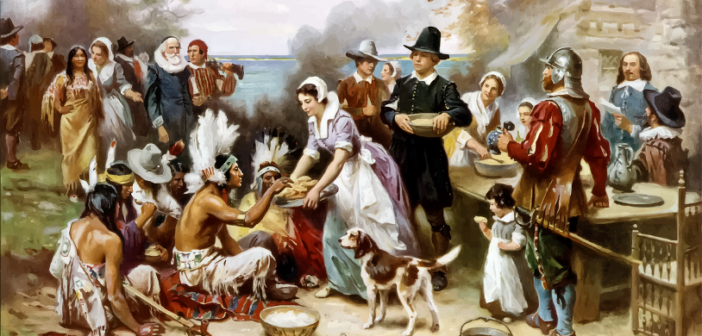Cam Christoff, Staff Writer
Endless turkey, stuffing, and food are staples of the Thanksgiving holiday. For many Americans, it is a day of family, friends, and reminiscing on what they are thankful and grateful for. However for many Native Americans, Thanksgiving has a different meaning.
Native Americans recognize the day of Thanksgiving as a reminder of the slaughter of millions of their people and the loss of their land. They recognize Thanksgiving as the National Day of Mourning.
According to CNN, there is a plaque in Cole’s Hill, a national landmark in Plymouth, Massachusetts, that states:
“Thanksgiving Day is a reminder of the genocide of millions of their people, the theft of their lands, and the relentless assault on their cultures. Participants in National Day of Mourning honor Native ancestors and the struggles of Native peoples to survive today.”
As the story depicts, over 400 years ago a celebration took place between the pilgrims and the tribes of Native Americans. While the truth remains that this celebration took place, so did the theft, genocide, and continuous struggles of America’s natives.
According to WBUR, a Boston news station, The United American Indians of New England declared Thanksgiving National Day of Mourning 50 years ago.
During a gathering of the descendants of the Pilgrims in 1970, Wamsutta Frank James, a Wampanoag man, was asked to make a speech. He was also asked to provide a copy of the speech in advance.
When he did, the descendants immediately turned the speech down as it did not praise the Pilgrims. They then offered to write him a new speech. James refused and instead gathered supporters to protest and commemorate the first official National Day of Mourning on Nov. 27, 1970.
Dr. Keith Jones, associate professor of marketing at Saint Leo University, mentioned that he has a Native American sister-in-law. He has also worked with the Ho-Chunk Nation in Wisconsin.
The Ho-Chunk Nation is a federally recognized tribe of the Ho-Chunk with traditional territory across five states in the United States: Wisconsin, Illinois, Iowa, Minnesota, and Missouri.
“What I find interesting is the Native American belief varies from group to group,” said Jones. “My sister-in-law and the Ho-Chunk Nation celebrate Thanksgiving and see it as it is, while other tribes do not celebrate it because of the mistreatment of Native Americans.”
According to the Smithsonian Magazine, every year The United American Indians of New England meet at Plymouth Rock on Cole’s Hill for a day of mourning. They gather at the feet of a statue of Grand Sachem Massasoit of the Wampanoag to remember and reflect in the hope that America will never forget.
Many Native Americans attend the Sunrise Ceremony at Alcatraz Island every year to recognize “Unthanksgiving Day,” a celebration in remembrance of those they have lost, according to KQED News.
While many Native American tribes do not celebrate Thanksgiving, many other groups across the country recognize it as an important turning point in American history.
“If we really go back and talk about the history of Thanksgiving, we can see that it was a time when the Pilgrims acknowledged the assistance they had gotten from the Native Americans and celebrated with them,” said Jones. “I think there is a lot of worth there.”
According to Jones, Thanksgiving is a time for family and a celebration of life.
“Thanksgiving is a time of family gatherings and a time where we can set aside a lot of the busyness in our lives in order to focus in on celebrating life together,” said Jones.
As many Americans see Thanksgiving as a time for family, gratefulness, and piles of food, there is a somber feel in the air for many Native Americans that honor their ancestors and those they have lost on the National Day of Mourning.





